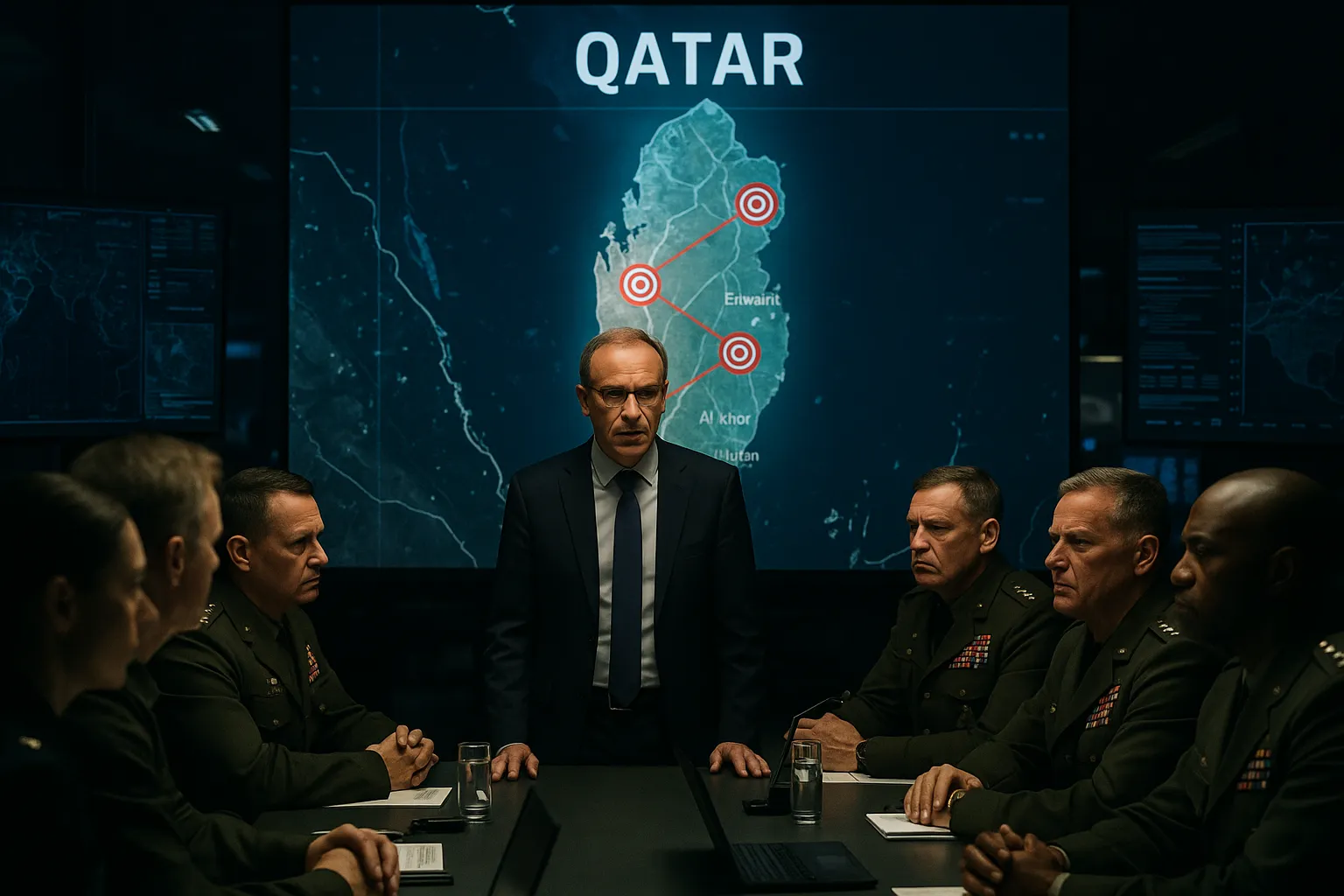Mossad Warned Against Timing of Qatar Strike but Netanyahu Proceeded

DOHA, Qatar- Mossad chief David Barnea cautioned Israel’s security cabinet that attacking Hamas officials in Qatar during ongoing ceasefire talks risked derailing negotiations, yet Prime Minister Benjamin Netanyahu ordered the operation to go ahead on September 10, 2025.
The warning highlighted deep divisions within Israel’s security leadership over striking senior Hamas figures abroad amid delicate U.S.-mediated hostage discussions.
Mossad’s reservations Mossad Director Barnea argued that carrying out an airstrike in Doha would undermine Qatar’s role as mediator and jeopardize critical behind-the-scenes talks to free Israeli captives. He urged delaying action until after negotiations concluded.
Netanyahu’s decision Despite Barnea’s objections, Netanyahu pressed for the strike, invoking parallels to U.S. responses after September 11, 2001, and insisting that “no safe haven” exists for those linked to the October 7 attacks.
Surprise and fallout
- A Washington Post account revealed that Mossad and the White House had assured Doha officials days earlier that Hamas leaders in Qatar would not be targeted, making Tuesday’s strike an unexpected breach of trust.
- The airstrike killed five Hamas members and one Qatari security officer, though Hamas’s chief negotiators reportedly survived.
- International condemnation swiftly followed, with Qatar vowing retaliation and calls from France, Germany and the U.K. for restraint.
Regional implications Analysts warn the operation could stall a prospective Gaza ceasefire and hostage-release agreement, bolstering hard-liners on both sides. Qatar’s Prime Minister pledged a coordinated response with regional partners, while U.S. mediators scramble to salvage talks.
Next steps Israel’s ambassador to Washington declared that if Hamas leadership evaded this strike, “we will succeed next time,” underscoring a likely continuation of covert and overt pressure on the group.
Categories
Autos and vehicles Beauty and fashion Business and finance Climate Entertainment Food and drink Games Health Hobbies and leisure Jobs and education Law and government Other Politics Science Shopping Sports Technology Travel and transportationRecent Posts
Tags
Archives
08/19/2025 (3) 08/20/2025 (40) 08/21/2025 (27) 08/22/2025 (22) 08/23/2025 (4) 08/24/2025 (21) 08/25/2025 (30) 08/26/2025 (24) 08/27/2025 (29) 08/28/2025 (16) 08/29/2025 (9) 08/30/2025 (13) 08/31/2025 (17) 09/01/2025 (167) 09/02/2025 (124) 09/03/2025 (149) 09/04/2025 (112) 09/05/2025 (72) 09/06/2025 (169) 09/07/2025 (162) 09/08/2025 (150) 09/09/2025 (176) 09/10/2025 (194) 09/11/2025 (194) 09/12/2025 (186) 09/13/2025 (207) 09/14/2025 (159) 09/15/2025 (175) 09/16/2025 (198) 09/17/2025 (196) 09/18/2025 (196) 09/19/2025 (207) 09/20/2025 (129) 09/21/2025 (4)